Damodaram Sanjivayya National Law University (DSNLU) offers admissions to programmes such as B.A. LL.B. (Hons.), LL.B., LL.M., Ph.D. in Law, and LL.D., with the LL.M. programme being one of the most popular courses at the postgraduate level. Admissions are conducted through programme-specific selection processes prescribed by the university and relevant authorities.
The admission process at DSNLU involves meeting the prescribed academic requirements, appearing in the applicable entrance examination, and completing further evaluation stages such as interviews or research proposal submissions for research programmes. Selection is carried out based on merit, eligibility criteria, and performance in the respective admission stages.
DSNLU Important Dates
DSNLU admits students to its B.A.LL.B, L.L.M. and Ph.D. programs primarily through CLAT (Common Law Admission Test).The important dates for CLAT 2026, applicable for DSNLU admissions, are as follows:
DSNLU LL.M. Admission
DSNLU offers a one-year full-time LL.M. program in multiple specialisations, designed to provide advanced knowledge in law and prepare students for careers in academia, research, corporate law, litigation, and policy-making.
Eligibility requires candidates to hold a Bachelor’s degree in Law (LL.B. or equivalent) with a minimum of 50% aggregate marks (45% for SC/ST/OBC/PwD). Admission is strictly through CLAT PG, followed by centralised counselling conducted by the Consortium of NLUs.
| Particulars | Details |
|---|---|
| Program Name | Master of Laws (LLM) |
| Specializations | Corporate and Commercial Laws, Criminal and Security Law, Intellectual Property and Business Law, Technology Law |
| Duration | 1 Year (Full-Time) |
| Entrance Exam Accepted | CLAT PG |
| Selection Process | CLAT (PG) Score → Merit List → Counselling → Final Admission |
| Application Mode | Online |
| Eligibility Criteria | LL.B. or Equivalent Degree with 50% Marks (45% for SC/ST/PwD) |
DSNLU CLAT-PG Cutoff Year-Wise Trend for General Category (Home State)
The LL.M. programme at DSNLU has witnessed fluctuating cutoff ranks over the years for General category Home State candidates. The improvement in the cutoff rank in 2026, from 5081 in 2025 to 5192 in 2026, highlights increased preference for the programme.
| Courses | 2026 | 2025 | 2024 | 2023 | 2022 |
|---|---|---|---|---|---|
| L.L.M. | 5192 | 5081 | 5642 | 7933 | 3990 |
DSNLU CLAT-PG Cutoff Year-Wise Trend for General Category (All India)
The LL.M. programme at DSNLU has shown a fluctuating cutoff trend over the years for General category All India candidates. The significant improvement in the cutoff rank in 2026, from 2215 in 2025 to 1361 in 2026, reflects higher demand for the programme.
| Courses | 2026 | 2025 | 2024 | 2023 | 2022 |
|---|---|---|---|---|---|
| L.L.M. | 1361 | 2215 | 2033 | 2583 | 1929 |
DSNLU LLM Admissions FAQ
Ques. How should candidates choose an LL.M. specialization at DSNLU during the counselling process?
Ans. Candidates should select their LL.M. specialization at DSNLU based on long-term academic and career goals, as the choice influences coursework, research focus, and dissertation topics. For instance, students interested in corporate law or in-house legal roles may benefit from Corporate and Commercial Laws, while those inclined toward academia or policy research may find Technology Law or Criminal and Security Law more aligned. Availability of faculty expertise and past placement trends should also be considered before finalizing the specialization during counselling.
Ques. Does securing a rank close to the DSNLU CLAT-PG cutoff guarantee admission to the LL.M. program?
Ans. Securing a rank near the DSNLU CLAT-PG cutoff improves a candidate’s chances but does not automatically guarantee admission. Final seat allotment depends on factors such as category-wise seat availability, home state or all-India quota, and candidate preferences during centralized counselling rounds. Cutoff ranks may also vary in subsequent rounds based on seat withdrawals and upgradation, making counselling choices crucial.
DSNLU Integrated BA. LLB Admission
DSNLU offers five 5-year full-time integrated undergraduate law programs: B.A. LL.B. (Hons.). The eligibility requires candidates to have passed Class 12 or equivalent with a minimum of 45% aggregate marks (40% for SC/ST/OBC/PwD). Admission is strictly through CLAT UG, followed by centralized counselling conducted by the Consortium of NLUs.
| Particulars | Details |
|---|---|
| Programs | B.A. LL.B. (Hons.) |
| Duration | 5 Years (Full-Time) |
| Entrance Exam | CLAT UG |
| Selection Process | CLAT UG Score → Counselling → Seat Allotment → Final Admission |
| Application Mode | Online (via CLAT Consortium portal) |
DSNLU CLAT Cutoff Year-Wise Trend for General Category (Home State)
B.A. LL.B. (Hons.) at DSNLU has consistently attracted strong demand from General category Home State candidates. The cutoff rank has shown fluctuations over the years, with a notable improvement in 2026, as the closing rank dropped from 7562 in 2025 to 4808 in 2026, reflecting increased applicant preference.
| Courses | 2026 | 2025 | 2024 | 2023 | 2022 |
|---|---|---|---|---|---|
| BALLB Hons. | 4808 | 7562 | 32019 | 6097 | 5094 |
DSNLU CLAT Cutoff Year-Wise Trend for General Category (All India)
B.A. LL.B. (Hons.) at DSNLU has shown a fluctuating cutoff trend over the years for General category All India candidates. The improved cutoff rank in 2026, dropping from 1682 in 2025 to 1281 in 2026, reflects a rise in demand for the programme.
| Courses | 2026 | 2025 | 2024 | 2023 | 2022 |
|---|---|---|---|---|---|
| BALLB Hons. | 1351 | 1682 | 1390 | 2080 | 1797 |
DSNLU BALLB Admissions FAQ
Ques. How does choosing DSNLU for an integrated B.A. LL.B. (Hons.) compare with opting for older NLUs?
Ans. Choosing DSNLU for the integrated B.A. LL.B. (Hons.) program can be a strategic option for students seeking a balanced academic environment with comparatively moderate CLAT cutoffs. While older NLUs may offer stronger legacy networks, DSNLU provides modern infrastructure, focused faculty attention, and growing academic recognition. This allows students to build strong foundations in law while benefiting from emerging opportunities in mooting, research, and internships.
Ques. What factors influence CLAT UG cutoff ranks for DSNLU’s B.A. LL.B. (Hons.) program each year?
Ans. CLAT UG cutoff ranks for DSNLU are influenced by multiple factors, including the number of applicants, seat availability under home state and all-India quotas, and the overall difficulty level of the CLAT exam. Additional aspects such as DSNLU’s national rankings, placement performance, and student preferences also play a role in determining closing ranks. As a result, cutoffs may vary each year across counselling rounds.
DSNLU Integrated LLB Admission
DSNLU offers five 3-year full-time integrated undergraduate law programs: LL.B. (Hons.). The eligibility requires candidates to have passed Class 12 or equivalent with a minimum of 45% aggregate marks (40% for SC/ST/OBC/PwD). Admission is strictly through CLAT UG, followed by centralized counselling conducted by the Consortium of NLUs.
| Particulars | Details |
|---|---|
| Programs | LL.B. (Hons.) |
| Duration | 3 Years (Full-Time) |
| Entrance Exam | CLAT UG |
| Selection Process | CLAT UG Score → Counselling → Seat Allotment → Final Admission |
| Application Mode | Online (via CLAT Consortium portal) |
DSNLU LLB Admissions FAQ
Ques. Who should consider DSNLU’s 3-year LL.B. (Hons.) program over a 5-year integrated law course?
Ans. DSNLU’s 3-year LL.B. (Hons.) program is best suited for candidates who already hold an undergraduate degree and wish to transition into the legal profession. It offers a focused legal education without the inclusion of foundational arts or social science subjects typically taught in 5-year programs. This makes it an efficient option for graduates seeking quicker entry into legal practice, litigation, or higher legal studies.
Ques. How does the counselling and seat allotment process work for DSNLU’s 3-year LL.B. (Hons.) program?
Ans. Admission to DSNLU’s 3-year LL.B. (Hons.) program is conducted through centralized CLAT UG counselling, where candidates must list DSNLU as a preference to be considered for seat allotment. Seats are allotted based on CLAT rank, category, and availability under home state and all-India quotas. Candidates must complete document verification and fee payment within the stipulated timeline to confirm their admission.
DSNLU Ph.D. Admission
DSNLU offers a Ph.D. program in Law and interdisciplinary areas. Eligibility requires candidates to hold a Master’s degree in Law or an allied discipline with a minimum of 55% aggregate marks (50% for SC/ST/OBC/PwD). Admission is through the DSNLU Ph.D. Admission Test (GPAT) or exemption via UGC-NET/JRF/SLET/GATE, followed by presentation of research proposal and interview.
| Particulars | Details |
|---|---|
| Program Name | Ph.D. in Law and Interdisciplinary Studies |
| Duration | Minimum 3 Years, Maximum 6 Years |
| Entrance Exam Accepted | Ph.D. Admission Test / Exemption for UGC-NET, JRF, SLET, GATE |
| Selection Process | Written Test → Research Proposal Evaluation → Personal Interview |
| Application Mode | Online |
| Eligibility Criteria | Master’s degree in Law or relevant field with 55% aggregate (50% for SC/ST/PwD) |
DSNLU Ph.D. Selection Process
- Apply through the Ph.D. Admission Portal.
- Appear for Ph.D. Admission Test (if not exempted).
- Shortlisting based on GPAT / UGC-NET/JRF/SLET/GATE performance.
- Submit a detailed research proposal.
- Appear for a personal interview/viva conducted by DSNLU.
- Final admission based on merit and research potential.
DSNLU Ph.D. Documents Required
- Master’s Degree Certificate & Mark Sheets (all semesters)
- GPAT / UGC-NET / JRF / SLET / GATE Scorecard (if applicable)
- Research Proposal (as per DSNLU guidelines)
- Transfer / Migration Certificate
- Conduct / Character Certificate
- Category / Reservation Certificate (if applicable)
- PwD Certificate (if applicable)
- Recent Passport-Size Photographs
- Valid Government Photo ID (Aadhaar / PAN / Passport / Driving License)
DSNLU PhD Admissions FAQ
Ques. Does qualifying UGC-NET or JRF guarantee direct admission to the Ph.D. program at DSNLU?
Ans. Qualifying UGC-NET, JRF, SLET, or GATE provides exemption from the written entrance test but does not guarantee direct admission to the Ph.D. program at DSNLU. Candidates must still undergo the research proposal evaluation and personal interview stages. Final selection depends on the originality of the research idea, alignment with faculty expertise, and overall performance in the interview.
Ques. How important is interdisciplinary research in DSNLU’s Ph.D. admission process?
Ans. Interdisciplinary research plays a significant role in DSNLU’s Ph.D. admissions, as the university actively encourages research that intersects law with fields such as technology, public policy, criminology, and social sciences. Candidates proposing interdisciplinary topics are evaluated on methodological clarity and relevance to contemporary legal issues. Such research proposals often receive positive consideration when they align with DSNLU’s established research centres and faculty strengths.
DSNLU LLD Admission
DSNLU, offers a Doctor of Laws (LL.D.) program for advanced legal research and scholarship. Eligibility requires candidates to hold a Ph.D. in Law or an equivalent doctoral degree from a recognized university. Admission is based on the submission of a research proposal and an interview conducted by DSNLU faculty.
| Particulars | Details |
|---|---|
| Program Name | LL.D(Doctor of Law) |
| Duration | Minimum 2 Years, Maximum 5 Years |
| Entrance Exam Accepted | Not applicable; selection based on research proposal and interview |
| Selection Process | Research Proposal Evaluation → Personal Interview |
| Application Mode | Online |
| Eligibility Criteria | Ph.D. in Law or an equivalent doctoral degree from a recognized universit |
DSNLU LL.D. Selection Process
- Apply through the DSNLU LL.D. Admission Portal.
- Submit a detailed research proposal in the chosen area of study.
- Appear for a personal interview conducted by the DSNLU faculty.
- Final admission is granted based on research potential, academic credentials, and interview performance.
DSNLU LL.D. Documents Required
- Ph.D. Degree Certificate & Mark Sheets (all semesters)
- Research Proposal (as per DSNLU guidelines)
- Transfer / Migration Certificate
- Conduct / Character Certificate
- Category / Reservation Certificate (if applicable)
- PwD Certificate (if applicable)
- Recent Passport-Size Photographs
- Valid Government Photo ID (Aadhaar / PAN / Passport / Driving License)
As per Akunuri Aditya’s review, DSNLU offers a pleasant campus with excellent infrastructure, digital classrooms, and a well-stocked library. He appreciates the student-friendly timetable, moderate curriculum difficulty, and accessible faculty. Internship opportunities are available through the internship cell, while placements are being developed, with many students relying on personal efforts. However, he notes the university’s remote location, long walking distances, and the hostel washroom facilities. Campus life is active with festivals, committees, and sports, making DSNLU a balanced option with scope for improvement.
DSNLU LLD Admissions FAQ
Ques. How is the LL.D. program at DSNLU different from a regular Ph.D. in Law?
Ans. The LL.D. program at DSNLU is designed for scholars who have already completed a Ph.D. in Law and wish to pursue advanced, post-doctoral legal research. Unlike a Ph.D., which focuses on foundational research training, the LL.D. emphasizes original contributions to legal theory, jurisprudence, and policy reform. This program is ideal for senior academicians, researchers, and legal professionals aiming to deepen their scholarly impact.
Ques. What factors does DSNLU prioritize while evaluating LL.D. research proposals?
Ans. DSNLU evaluates LL.D. research proposals based on originality, depth of legal analysis, and the potential contribution to the field of law. The proposal must demonstrate advanced research competence and a clear understanding of existing legal scholarship. During the interview, candidates are further assessed on the feasibility of their research plan and its alignment with DSNLU’s academic and research focus areas.
DSNLU Admission FAQs
Ques. Can candidates apply for multiple programmes at DSNLU in the same admission cycle?
Ans. Applicants are also only allowed to apply to several programmes at DSNLU when they have met the admission requirements and prerequisites of the respective programmes. In the case of CLAT-based programmes i.e. B.A. LL.B., LL.B., and LL.M., the candidates have to take the counselling process as CLAT UG or CLAT PG. Nevertheless, such research programmes, as Ph.D. or LL.D., have to be applied individually with the help of the admission portal of DSNLU and cannot be combined with CLAT counselling.
Ques. Does DSNLU conduct spot admissions if seats remain vacant after CLAT counselling?
Ans. Yes, DSNLU is at liberty to carry out spot admissions in situations where there are empty chairs at the end of all CLAT counselling. The official website of the university usually announces spot admissions, and they are carried out according to merit, eligibility, and documents verification. Intrigued applicants should pay close attention to the announcements of DSNLU because there are no long-term plans in spot admissions, and the available spots are distributed first, according to the merit, and firstly, according to the time.
Ques. Is it mandatory to choose DSNLU as a preference during CLAT counselling to secure admission?
Ans. Yes, students are required to name DSNLU as one of their options in CLAT counselling so that they could be targeted by the university to be assigned seats in their undergraduate or postgraduate courses. CLAT only qualification is not a guarantee of consideration unless DSNLU is shortlisted at the stage of the filling of preferences. The sequence of preferences is also very important and the first preference is given to the top ones, according to the merits and the availability of the seat.
Ques. How does the Home State quota impact admissions at DSNLU?
Ans. DSNLU has a high Home State quota, which affects the possibility of admission among the candidates of Andhra Pradesh. Programmes with Home State candidates may also have relatively relaxed cutoff ranks and may be reserved. The candidates, however, will be required to provide valid domicile and category certificates during admission of students, otherwise the admission can be terminated.
Ques. What happens if a candidate fails document verification after securing admission at DSNLU?
Ans. DSNLU has the right to cancel the admission even after allotment of seats provisionally in case the candidate does not provide valid or complete documents in case of their verification. This is applicable to the mismatch in the academic documents, category certificates, residence evidence or entrance examination documents. It is highly recommended that candidates should make sure that all of the documents should comply with the eligibility criteria and verification of the university to certify admission.

![Damodaram Sanjivayya National Law University - [DSNLU]](https://image-static.collegedunia.com/public/college_data/images/logos/1441258157nnt.png?h=71.7&w=71.7&mode=stretch)

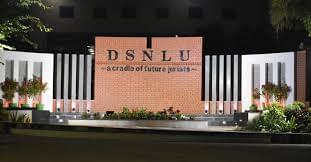
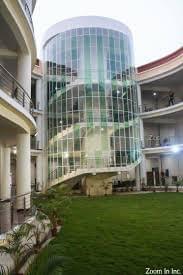





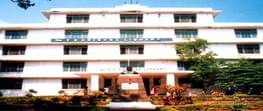



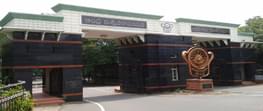



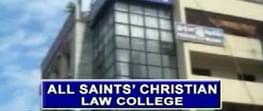

































Comments